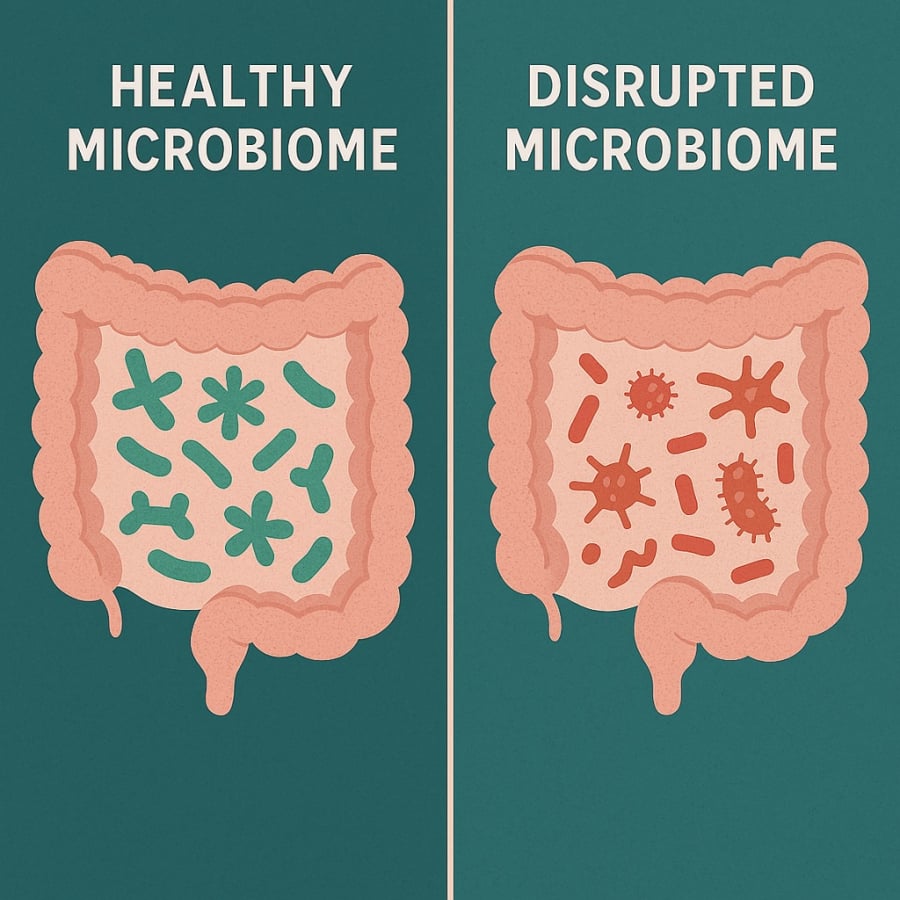## Colon Cancer: Unraveling the Impact of Dietary Choices and Potential Risks
The Dual-Edged Sword of Low-Carb Diets: A Growing Concern for Gut Health
Colon cancer, one of the most prevalent cancers globally, is increasingly becoming a significant public health concern. According to the World Health Organization (WHO), colon cancer ranks third in incidence and is the second leading cause of cancer-related deaths worldwide. While the majority of cases occur in individuals aged 50 and above, the youthification of this disease is also being observed. So, what are the main culprits contributing to the development of this deadly disease? A recent study published in Nature Microbiology has revealed that diet—a familiar aspect of daily life—may pose more risks than we think.
In recent years, low-carb diets have become a popular weight-loss trend. However, a new study from the University of Toronto, Canada, prompts a thought-provoking question: Is this diet truly safe?
According to Professor Alberto Martin, an immunology expert at the University of Toronto, the research team conducted experiments on mice to assess the impact of three different diets: a normal diet, a low-carb diet, and a Western diet (high in fat and sugar). The results were quite surprising: the low-carb diet could activate the growth of a strain of E. coli bacteria that produces colibactin—a compound that damages DNA and promotes polyp formation in the colon, a pre-cancerous stage.
What makes low-carb diets dangerous? The researchers explain that the lack of fiber in these diets not only increases gut inflammation but also alters the gut microbiota, creating a conducive environment for the growth of colibactin-producing E. coli. This finding is particularly alarming, given that low-carb diets are still widely promoted as an effective weight-loss method.

Insights from Vietnamese Experts: Diet’s Link to Colon Cancer
To gain further insights, I reached out to ThS.BS Nguyen Thi Minh Huong, a nutrition specialist at Hanoi University Hospital. In an interview with VnExpress, Dr. Huong emphasized the crucial role of diet in preventing colon cancer.
“Fiber is a close companion of the digestive system,” she explained. “When fiber is lacking, the digestive process is affected, leading to the accumulation of toxins in the gut. This not only increases the risk of inflammation but also creates a favorable environment for harmful bacteria to thrive.”
She also cautioned against imbalanced diets, especially those that completely eliminate certain nutrient groups, as they can have severe long-term health consequences.
Navigating a Healthy Path: Strategies for Gut Health Preservation
Although the study was conducted on mice, scientists believe that the findings offer important insights for humans. For individuals with Lynch syndrome—a genetic condition that increases the risk of colon cancer—researchers recommend avoiding low-carb diets or using antibiotics to eradicate colibactin-producing E. coli.
However, there is a silver lining. The study also indicated that supplementing with fiber, particularly the soluble fiber inulin, could mitigate the harmful effects of low-carb diets. Inulin not only inhibits the growth of E. coli but also improves gut health, especially in high-risk individuals such as those with inflammatory bowel disease.
Professor Martin expressed hope that these findings would raise community awareness about the importance of a balanced diet. He emphasized, “We need to understand that there is no one-size-fits-all diet. Each individual should listen to their body and adjust their diet accordingly.”

Practical Tips for Colon Cancer Prevention
- Prioritize fiber: Include plenty of vegetables, fruits, and whole grains in your daily meals. Fiber supports digestion and helps maintain a balanced gut microbiota.
- Limit processed meats: Meats like sausages and cold cuts contain preservatives that may be harmful to your health.
- Manage your weight and stay active: Obesity and a sedentary lifestyle are significant risk factors for colon cancer.
- Approach diets with caution: Before adopting any diet, consult with a doctor or nutritionist to ensure your safety.
Lastly, remember that health is your most valuable asset. The small dietary choices you make today can have a significant impact on your future health. Listen to your body and always prioritize healthy, natural foods.





































